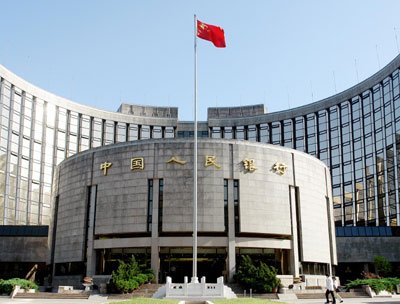The US central bank has announced it will resume its policy of pumping more money into the economy via so-called quantitative easing.
The Federal Reserve said it will buy “additional agency mortgage-backed securities at a pace of $40 billion per month”.
The central bank also said it could increase the size of its purchases if the economy does not improve.
The economy is a pivotal issue in this year’s US presidential election.

The US central bank has announced it will resume its policy of pumping more money into the economy via so-called quantitative easing
Interest rates in the US have been close to zero for several years now, and the Fed again kept them at below 0.25%.
“The committee is concerned that, without further policy accommodation, economic growth might not be strong enough to generate sustained improvement in labor market conditions,” said the Fed, led by chairman Ben Bernanke.
US stocks, which had been little changed, gained after the announcement. The benchmark Dow Jones average was 0.7% higher.
The US central bank has tried to support the economy by quantitative easing – buying $2.3 trillion in bonds in two rounds.
The Fed calls such measures “asset purchases”, where the central bank buys bonds to keep the long-term cost of borrowing down. The last round of asset purchases ended last year.
Mortgage-backed securities are debt backed by loans made to homeowners.
The unemployment rate in the US has been above 8% since January 2009, but the current 8.1% is down from the recent high of 10% in October 2009.
“To support continued progress toward maximum employment and price stability, the committee expects that a highly accommodative stance of monetary policy will remain appropriate for a considerable time after the economic recovery strengthens,” the Fed said.
The Fed also confirmed that its $267 billion programme to reduce long-term borrowing costs for firms and households would continue for the rest of the year.
In a move dubbed “Operation Twist”, the central bank buys longer-term bonds from retail lenders and swaps them for shorter-term bonds.
Debt-laden Spain has raised 2.98 billion Euros on the financial markets, but was forced to pay higher interest rates.
The average yield on bonds repayable in five years rose to 6.46%, against 6.07% at an auction last month.
The average yield on seven-year bonds was 6.7%, up from 4.83% last time.
“They [Spain] sold what they wanted to sell, that’s about the only good thing about it,” said Monument Securities analyst Marc Oswald.

Debt-laden Spain has raised 2.98 billion Euros on the financial markets
Investor demand for the bonds fell, with the issue 2.1 times oversubscribed, compared with 3.4 times in June.
Investors remain worried about Spain’s high funding costs and whether there is a viable plan to recover from a four-year economic downturn.
Later on Thursday, German MPs were due to vote on an aid package of up to 100 billion Euros for Spain.
It is expected that the government of Chancellor Angela Merkel may suffer a small rebellion, but that MPs will still clear the rescue package.
Angela Merkel said ahead of the vote: “From what I am hearing, I am optimistic.”
The German parliament has been recalled from its summer break to vote on the emergency eurozone action.
China’s central bank has cut its benchmark interest rates for the second time in two months, in a bid to arrest slowing economic growth.
Benchmark lending rates will be cut from 6.31% to 6%, while deposit rates will fall from 3.25% to 3%.
The rate cuts will come into force on Friday and closely follow on from the last cuts made on 7 June.
Before these moves, the People’s Bank of China had not cut interest rates since 2008.

China’s central bank has cut its benchmark interest rates for the second time in two months
Commenting on the move, Rupert Armitage, director at Shore Capital, said: “China are cutting rates because they’re experiencing a slowdown.
“Everybody’s been concerned about the economy, but now they’re actually doing something about it.”
The central bank’s rate cuts come on the back of a gradual liberalization of China’s banking system.
Banks can now compete on the interest rates they offer customers, within a stipulated range.
China’s export growth has been hit by a fall in demand from two of its biggest markets, the US and Europe, still struggling with the global debt crisis.
China’s economy grew at an annual rate of 8.1% in the first quarter, the slowest pace in almost three years.
It hopes lower interest rates will help boost domestic demand.



